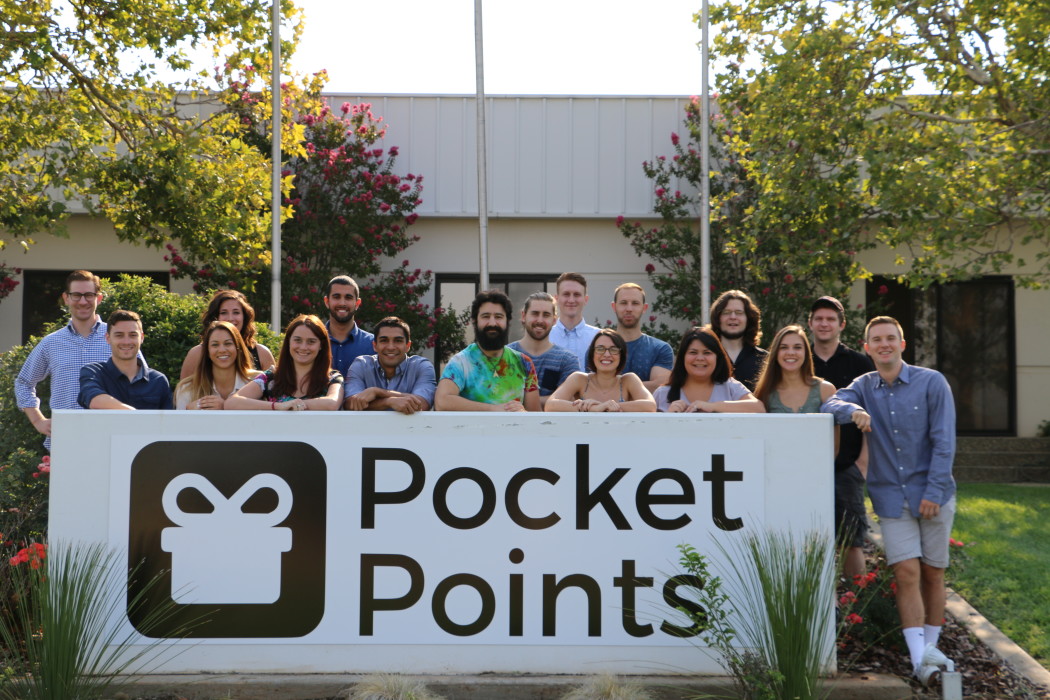Pocket Points: Earn more than just a degree while in class
Pocket points, an app designed to keep students off their phones, launches locally this week, just in time for the start of classes.
Available on the Apple Store and the Google Play Store, the app goes live again Aug 29th of 2016, launched for no cost for students and contains no ads. Simple to use, you turn it on while in an “academic building” and lock it. The longer you go without opening it back up, the more points you earn and can then redeem at local businesses for discounts or free food.
Early last week I had a chance to speak to Mitch Gardner, the Chief Operating Officer of Pocket Points Inc. to get some more information on the app and its history.

The founders of Pocket Points
During the spring of 2014 at California State University, Chico, Gardner said he and his co-founder, Rob Richardson, “saw the problem of people constantly being on their phones in class and, as entrepreneurs, we wanted to fix that so we brainstormed and thought that we could incentivize students with free food.”
It was then that the development phase began and by fall 2014, the app was launched at CSU.
Within weeks of its initial launch, just over 30% of Chico students were using the app and as news of this success spread, Gardner and Richardson began to test the app at the larger Pennsylvania State University. The success at Penn State was even better than they had hoped with almost 40% of students using the app, again within just a few short weeks. Since those two tests, the app has been set up for over 100 university campuses in the United States and Canada, with USU being one of the most recent.
The app currently has a 4 star rating on the Apple App Store and a 2.5 star rating on the Google Play store, although many of the negative reviews for the android come from misunderstanding how the app works and what it does, in addition to androids being harder to develop for.
When loading, the app will tell you to use it on campus, and most features will be blocked while not on campus. Common complaints say users cannot use this app most places on campus, which according to Gardner was never the goal. Instead, the app uses Geo-fencing technology to mark specific buildings as academic and only allows the use of the app in those spaces. This eliminates the risk of people cheating the system and causes most of the Play Store complaints.
All said, the app is very successful, helping students stay off their phones for 650 million minutes in the last year, which is over 1,200 years of phone-free time. Hopefully it will see success at USU, as it launches with deals for businesses like the Crêpery, one of the most popular eateries in town; Tandoori Oven, which sits in a prime location just off campus; and Morty’s Café, located on campus directly below Darwin’s Landing Apartments. Additionally, students can recommend businesses to the app so that they can start getting deals on their favorite places in town which helps create a symbiotic relationship between students and local businesses.
–Catherine St. Claire
catherine@aggiemail.usu.edu

